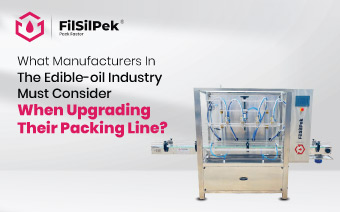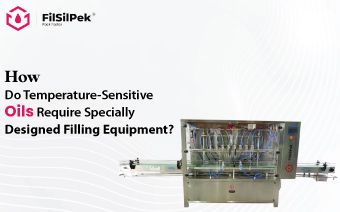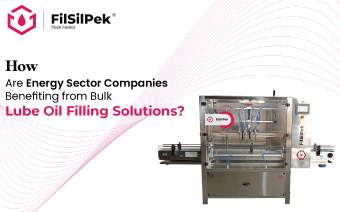Role of Oil Filling Machine in Meeting Regulatory Compliance in Manufacturing Business
In the intricate dance of modern manufacturing, the rhythm of regulatory compliance sets the beat. The harmonious interplay between meticulous processes and stringent guidelines orchestrates a symphony of product quality, safety, and environmental responsibility. At the heart of this symphony lies the indispensable role of oil filling machines. This blog post embarks on an exploration of how these machines, with their precision and automation, compose a masterpiece in meeting regulatory standards within the manufacturing landscape.
Significance of Regulatory Compliance in Manufacturing
Imagine a world where products lack uniformity, where safety takes a back seat, and where environmental impact is an afterthought. Such a world is a dissonant one, plagued by chaos and distrust. Regulatory compliance is the maestro that conducts manufacturing businesses towards harmony. It ensures that every note played in the manufacturing process resonates with quality and precision. In sectors dealing with oils – from consumables like food and pharmaceuticals to essentials like automotive lubricants – the act of filling and packaging becomes a crescendo of adherence to standards, safeguarding consumer safety and product integrity.
The Role of Oil Filling Machines in Ensuring Compliance
Enter the virtuosos of compliance: oil filling machines. These mechanical virtuosos possess an inherent precision that transforms the act of filling into an art form. Their orchestration of accurate measurement and controlled dispensation is akin to a conductor guiding each note of an orchestra.
The result is a harmonious product filling process that minimizes the risk of underfilling or overfilling, a feat that resonates with the guidelines set forth by regulatory bodies.
This symphony of precision translates directly into a consistent cadence of product quality, adhering to regulatory mandates with a melodic finesse.
Steps to Implement Oil Filling Machines for Regulatory Compliance
Proper Machine Selection
Selecting the right oil filling machine is akin to choosing the lead instrument for an ensemble. Consider the unique attributes of your manufacturing process – viscosity of the oil, packaging types, and production volume – to harmonize with a machine that aligns with industry-specific regulations.
Calibration and Maintenance
Just as a musical instrument requires tuning before every performance, oil filling machines demand regular calibration. This process fine-tunes the accuracy of measurements, ensuring each fill hits the right note. Scheduled maintenance acts as the symphony’s intermission, preventing breakdowns that could disrupt the rhythm of compliance.
Operator Training
Every musician needs training to master their instrument, and similarly, machine operators need proper training. Equip them with the knowledge to conduct a harmonious filling process – from setting up the machine’s tempo to troubleshooting potential hitches. Skilled operators are key to maintaining the rhythm of compliance.
Documentation and Record-Keeping
Every performance is documented in sheet music, and so is every filling operation. Maintain meticulous records, from the opus of batch numbers to the tempo of quantities and timestamps. This virtuoso documentation not only aids in audits but also paints a clear picture of compliance in action.
Benefits of Using Oil Filling Machines for Regulatory Compliance
Exceptional Precision and Dosage Control:
Regulatory compliance mandates precise product dosages to ensure consistency and safety. Oil filling machines excel in delivering accurate fill volumes, measured to the milliliter. This level of precision aligns seamlessly with regulatory requirements, ensuring that each product adheres to specified dosages.
Minimized Cross-Contamination Risks:
Manufacturing compliance necessitates stringent prevention of cross-contamination. Oil filling machines are designed with closed systems that minimize the risk of foreign particles infiltrating the product. This not only meets regulatory hygiene standards but also ensures product integrity.
Validation and Data Integrity:
Regulatory authorities often demand robust validation processes. Modern oil filling machines are equipped with advanced sensors and software, facilitating validation procedures by providing accurate data on every step of the filling process. This data, backed by electronic records, enhances data integrity and aligns with regulatory validation protocols.
Compliance with GMP Standards:
Good Manufacturing Practices (GMP) regulations emphasize quality control, traceability, and documentation. Oil filling machines are built with GMP principles in mind, offering automated processes that minimize manual intervention, ensure consistent quality, and maintain meticulous documentation for audit readiness.
Integrated Quality Control:
Oil filling machines can be integrated with quality control mechanisms such as check weighers and vision systems. These integrations provide real-time inspection and verification of product weight, label accuracy, and seal integrity, aligning with regulatory mandates for product quality.
Electronic Batch Records:
Compliance often requires detailed batch records. Oil filling machines generate electronic batch records that capture every aspect of the filling process, from start to finish. These records streamline compliance reporting, audits, and validation requirements.
Rapid Changeover and Adaptability:
Regulatory changes demand swift adjustments. Oil filling machines offer rapid changeover capabilities, enabling seamless adjustments to accommodate new product formulations, fill volumes, or labeling requirements. This adaptability ensures manufacturing processes remain
Risk Mitigation:
Regulatory compliance often involves assessing and mitigating risks. Automated oil filling machines reduce human intervention, decreasing the likelihood of errors and contamination. This risk reduction aligns with compliance goals and contributes to product safety and quality.
Documentation of Critical Process Parameters:
Compliance mandates documentation of critical process parameters. Oil filling machines capture essential parameters such as fill rate, pressure, and vacuum levels, ensuring accurate documentation and assisting in process optimization.
Conclusion
In the grand theater of manufacturing, regulatory compliance claims the spotlight. It demands adherence, precision, and unison – values that form the heart of quality production. The role of oil filling machines in this performance cannot be underestimated. Their precision, akin to the finesse of a skilled musician, brings compliance into harmony with the manufacturing process.
By orchestrating the steps outlined above and embracing the symphony of advanced technology, manufacturing businesses can achieve an opus of quality that resonates with consumer trust and industry acclaim. As the curtain falls, remember that in the realm of compliance, the oil filling machine takes a bow as a silent conductor of precision and regulatory adherence.
What Manufacturers in the Edible-Oil Industry Must Consider When Upgrading Their Packing Line?
Upgrading the packing line doesn’t mean getting newer machine…
How Do Temperature-Sensitive Oils Require Specially Designed Filling Equipment?
Temperature-sensitive oils—such as coconut oil, shea butter oil, certain medicinal oils, and some industrial-grade..
How Are Energy Sector Companies Benefiting from Bulk Lube Oil Filling Solutions?
The energy sector, spanning oil and gas, power generation, and renewable energy, is one of the most crucial industries globally..



